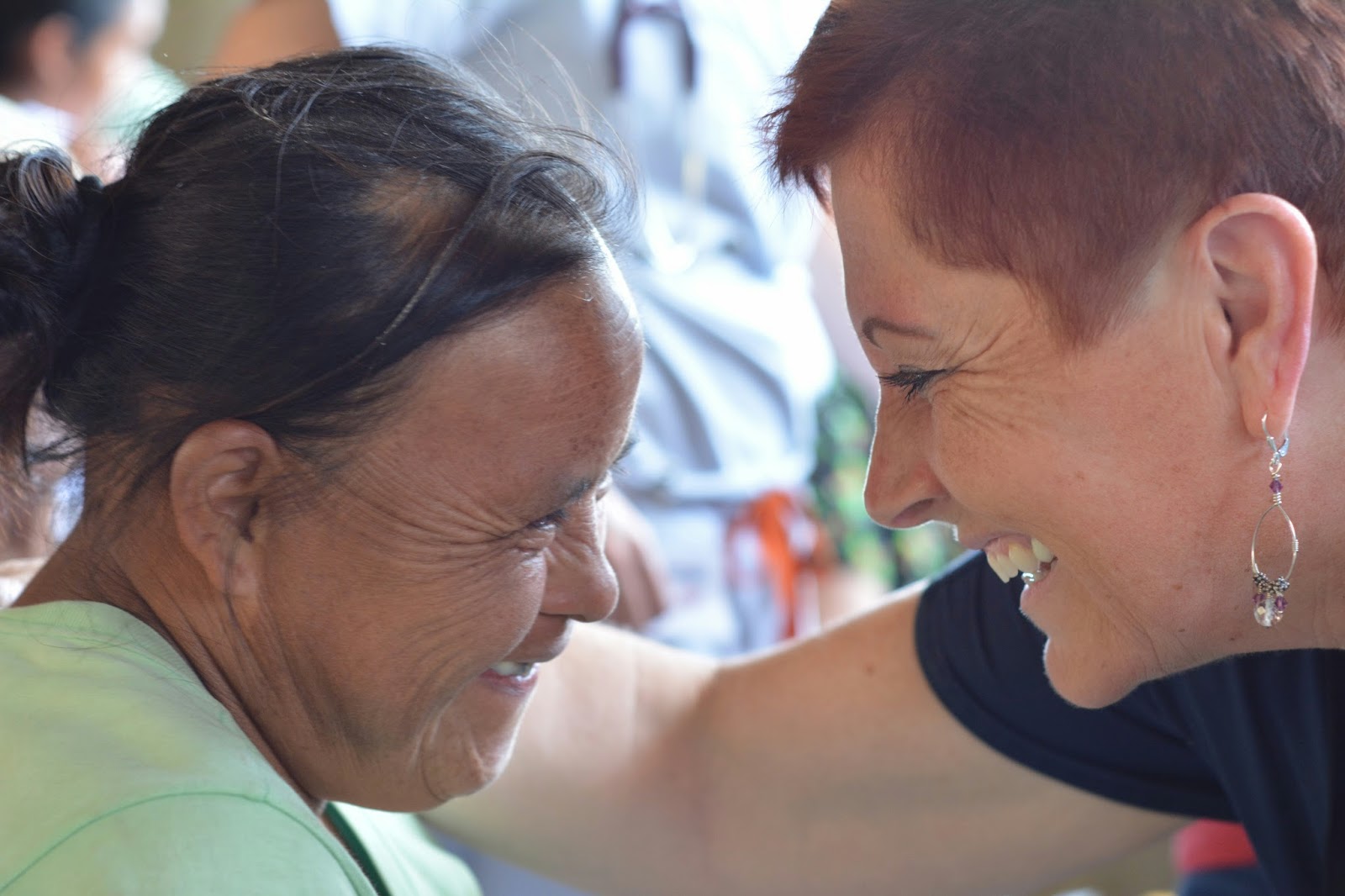Christine Rushton, Murrow College Backpack Journalist
 |
| A young Guatemalan woman in the hills of Zacapa. Christine Rushton | Murrow College |
Face wrinkled with the lines of life, the Guatemalan mother cupped
her daughter’s face with her hands to whisper one word.
“Hermosa.” Beautiful.
Just seconds before, I had bent down between them to share
the photo I had captured of the woman’s daughter. Living with Down Syndrome,
the 35-year-old turned toward her mother as the creases along her eyes crinkled
with a smile.
It was the first time she had seen her own face.
 |
| Karen with HIM hugs a young woman waiting at the dental clinic. Christine Rushton | Murrow College |
In a mountain village two hours from Zacapa, the
Hearts in Motion dental crew set up a triage clinic to pull teeth for the
locals on Tuesday. The team stood in the bed of barred-in pickup trucks to drive
an hour up the rocky road.
The Guatemalan woman who asked for the photo had arrived
that afternoon for help relieving her aching tooth. She and about 40 other
locals gathered at the shed, the largest building available for the doctors to
pull teeth.
Jumping from station to station, I noticed mouths of babies,
mouths of adults and mouths of the elderly all filled with rot. Age did not
seem to factor into the issue.
Dr. Steve Woodard, an oral surgeon from Spokane, Wash.,
explained that the Guatemalans put sugar in their water and eat a diet of
sugar-laden foods. Soda in the country is less expensive than water, and money
drives their decisions.
 |
| Dr. Steve Woodard with a patient. Christine Rushton | Murrow College |
His first patient, a girl clutching a brown teddy bear,
opened her mouth to reveal four rotted teeth in the front of her top row. Dr.
Woodard pulled them all.
For the village the team visited today, corn is the primary source of food; corn contains a high percentage of natural sugar.
 |
| The triage dental clinic in the mountains. Christine Rushton | Murrow College |
On the bus trip home, Dr. John Miller shared his experience as an oral surgeon volunteering in the
country.
“Those kids today didn’t even know why they were there,” he
said.
Dr. Miller narrowed the dental problem to four contributing
factors:
1. Low price of soda.
2. Limited access to dentistry.
3. Lack of education on proper hygiene.
4. No money for toothbrushes and
toothpaste.
The people do not have the resources to preserve their dental
hygiene. Those that have permanent teeth pulled have to rely on mushed or soft
food for nutrients the rest of their life. The doctors leave knowing they soothed
temporary pain.
But as Dr. Miller commented in reference to the shortcomings
of the dentists’ efforts, the economy and education system does not meet the
need.
 |
| A mountain village in Zacapa. Christine Rushton | Murrow College |

No comments:
Post a Comment